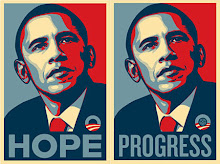Years ago my friend Ben Larsen sent me Ender's Game to read. Either that or he told me to read it. Whatever, I read it and thought... hm... interesting. I wasn't that impressed with it. Years later, I read it again, and thought it was much better the second time. In fact I was downright taken by it! Then I read Speaker for the Dead, which is the follow up to Ender's Game, and I listed that as one of my favorite top 50 novels of all time. Great book!
And so I immediately read the next book in the series, right? Right? Nope. I have read a lot of Orson Scott Card books over the years, but I never read Xenocide. Why? Well it starts with this new character, and half way through the first chapter I always put it down. You don't know how many times I've started that book.
But this last month, I finally managed to get past that first chapter. It's ironic, because I am always saying I think the first chapter of Speaker for the Dead is one of the best there is. And this one? Well it's not bad, it's just so different that I couldn't get into it.
Okay, enough about why and when I read the book. Is it any good? It is. It is a GREAT book. It asks so many questions, and puts it's characters in such moral dilemmas that it has this unique edge to it. I guess you don't see most authors these days confront ethics like this. For that matter, most authors these days have loose morals and just assume a certain degree of villainy is common to the everday man and woman and isn't worth confronting.
Plus, Card does something in a lot of his stories I admire and always enjoy: He talks about GOOD people. I think common wisdom would say that GOOD people are boring, but that is the crux of Xenocide. A lot of good people together end up butting heads, and doing a lot of bad. Not because they are bad, but because they get misguided and because they are doing things they are so convinced ARE good. And indeed, each individual person's point of view CAN be seen as good! But when you throw it all in the mix, and you add in the dynamics of a very dysfunctional family, and you add in the ethical dilemma of three different races (or even four, actually) trying to coexist, and you get a really great story.
But... the story is loose. It's not as tight as Speaker for the Dead. I'm not entirely sure what I mean by that, except that it's expansive and big and lacks grounding. Card is never one for detailed descriptions of people, places or things, and this novel suffers because of it. Granted, I never skimmed a paragraph because he was describing the leaves and stems of the trees. But I think one of the reasons it doesn't feel as tight is because so little is devoted to description.
Plus, the story is just big. And the characters don't have the time to develop and grow and 'simmer' that they should. Too much happens. It's a big book as it is, but it should have been a bit bigger. The exploration of ethical dilemmas was incredible and exciting. But the characters and the setting came up a bit short.
Years ago, I was talking to Card about Ender's Game, and I told him one of the great things about the story was that more than all the science fiction, the buggers, and the battle school, I came to really care about Ender, and I wanted this little boy to have happiness. He responded by saying "Then I have succeeded. That is what really matters."
And as good as Xenocide is... it does not focus enough on any one character for me to have that bond with them, that rooting interest, that place in my heart where great characters reside and live with me.
In Xenocide, the story overwhelms the characters. Oh, but what a fine story it is!
Subscribe to:
Post Comments (Atom)






No comments:
Post a Comment